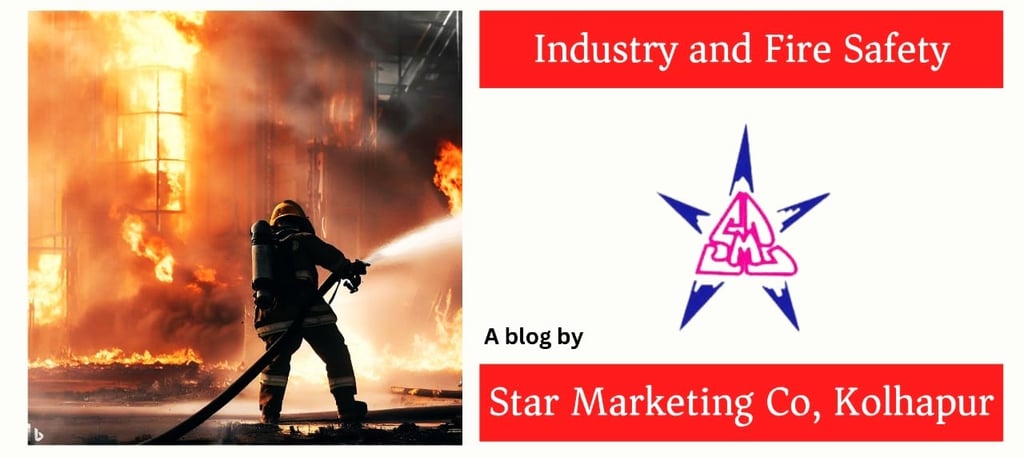Industry and Fire Safety
Ensuring Industrial Safety: The Vital Importance of Fire Safety Measures


Introduction:
Fire safety measures are a critical aspect of industrial operations that should never be underestimated or overlooked. Industries, regardless of their size or nature, face numerous fire hazards that pose significant risks to the safety of employees, assets, and the overall business. In this blog, we will explore the importance of fire safety measures in the industrial sector and shed light on the potential consequences of neglecting these precautions. Understanding the significance of fire safety is crucial for industries to create a safe and secure working environment.
Protecting Lives and Ensuring Employee Safety:
The most paramount reason for implementing fire safety measures in the industrial sector is to protect the lives of employees. Human lives are invaluable, and the well-being of every worker should be a top priority for any responsible organization. Fire accidents can result in devastating injuries and fatalities, leaving a long-lasting impact on individuals and their families. By implementing robust fire safety measures, such as installing fire alarm systems, sprinklers, and providing proper training, industries can significantly reduce the risk of fire-related injuries and casualties. Employees can work with peace of mind, knowing that their workplace is equipped to handle potential fire emergencies effectively.
Preserving Assets and Minimizing Property Damage :
Apart from the obvious threat to human life, fire accidents in industries can cause substantial damage to property and assets. Buildings, machinery, raw materials, finished goods, and critical data can all be lost or severely compromised in the event of a fire outbreak. The financial repercussions of such incidents can be staggering, potentially leading to business disruptions, loss of revenue, and even bankruptcy for smaller enterprises. By implementing fire safety measures, industries can minimize the extent of property damage and preserve their assets. Early detection systems, such as fire alarms, coupled with prompt evacuation protocols, can significantly reduce the spread of fire and limit the destruction caused.
Maintaining Business Continuity:
Fire accidents can bring industrial operations to a grinding halt, leading to significant downtime and disruptions in production. Depending on the severity of the incident, businesses may be forced to suspend operations for an extended period while repairs and renovations take place. This can have a cascading effect, impacting the supply chain, customer satisfaction, and overall business reputation. Implementing fire safety measures ensures that industries are better equipped to mitigate the impact of fire emergencies and maintain business continuity. Adequate fire suppression systems, such as sprinklers and fire extinguishers, can help control and extinguish fires swiftly, minimizing the disruption to operations.
Complying with Legal and Regulatory Requirements:
Fire safety measures are not only important from a humanitarian perspective but also from a legal and regulatory standpoint. Industrial sectors are subject to various fire safety codes and regulations enforced by local authorities. Compliance with these regulations is not only mandatory but also crucial for the smooth functioning of businesses. Failure to adhere to fire safety guidelines can result in hefty fines, legal consequences, and reputational damage. Industries must stay updated with the latest fire safety regulations applicable to their operations and ensure strict adherence. By maintaining compliance, businesses demonstrate their commitment to providing a safe working environment for employees and fulfill their social responsibility.
Preventing Environmental Impact:
Industrial fires not only endanger lives and assets but also pose a significant threat to the environment. Fire accidents can lead to the release of toxic substances, hazardous fumes, and pollutants into the air, water, and soil. These pollutants can have detrimental effects on local ecosystems, wildlife, and nearby communities. Industries must implement fire safety measures to prevent or minimize the environmental impact of fire incidents. Prompt response, effective fire suppression systems, and proper containment procedures can help prevent the spread of hazardous materials and mitigate environmental damage. By adopting environmentally conscious fire safety measures, industries can demonstrate their commitment
